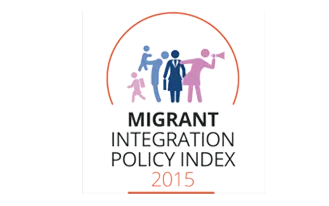MIPEX 2015
“Integration policies: Who benefits?”
The project “ Integration policies: Who benefits? The development and use of indicators in integration debates ” (MIPEX 2015) is led by CIDOB, and the Migration Policy Group (MPG). The project aims to inform and engage key policy actors about how to use indicators to improve governance and policy effectiveness relating to the integration of immigrants.

The main objectives of the project are:
- To identify and measure integration outcomes, integration policies, and other contextual factors that can impact policy effectiveness.
- To describe the real and potential beneficiaries of policies in seven key areas, namely employment, education, political participation, access to nationality, family reunification, long-term residence, and anti-discrimination.
- To collect and analyse high-quality evaluations of integration policy effects.
The key research outputs will be the updating of the Migrant Integration Policy Index, which in its fourth edition will be published as MIPEX 2015, and an interactive database which compares and classifies how the 28 member states facilitate opportunities to immigrants fully participate in society and have equal rights, through 144 policy indicators. The results will be available to download from the MIPEX website, in book format, including the information of each participating country in each of the 8 policy areas.
In order to deliver these outputs, the MIPEX team will:
- Update policies: the project will provide detailed and comparable accounts of the most recent policy changes, building on the baseline data gathered in the MIPEX research. A new strand on health will be added in partnership with the COST/ADAPT research network and the International Organisation for Migration.
- Collect and analyse statistical information on policy outcomes, context, and beneficiaries.
- Identify and analyse evaluations of policy effects in at least 10 Member States.
- Publish and disseminate the results - press campaign will be organised in all 28 EU Member States and in-depth policy debates in at least 12. In this case, national debates will be organised, expecting 50-100 participants, where participants will have the opportunity to discuss whether and how policies lead to the desired outcomes for different beneficiaries. At the final event in Brussels, the results of the research, evaluations and national debates will be presented, aiming to link national with European debates and the Stockholm Programme with the Europe 2020 strategy.

Co-funded by the European Union
Experts :
- Dr. Özge Bilgili
- Anna Bardolet Dilme
- Elena Sánchez-Montijano

